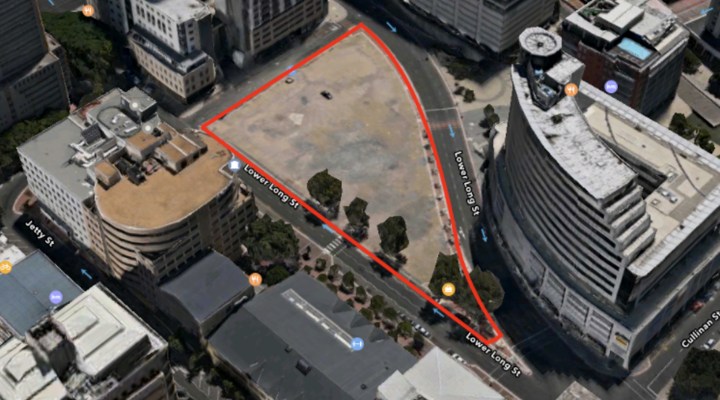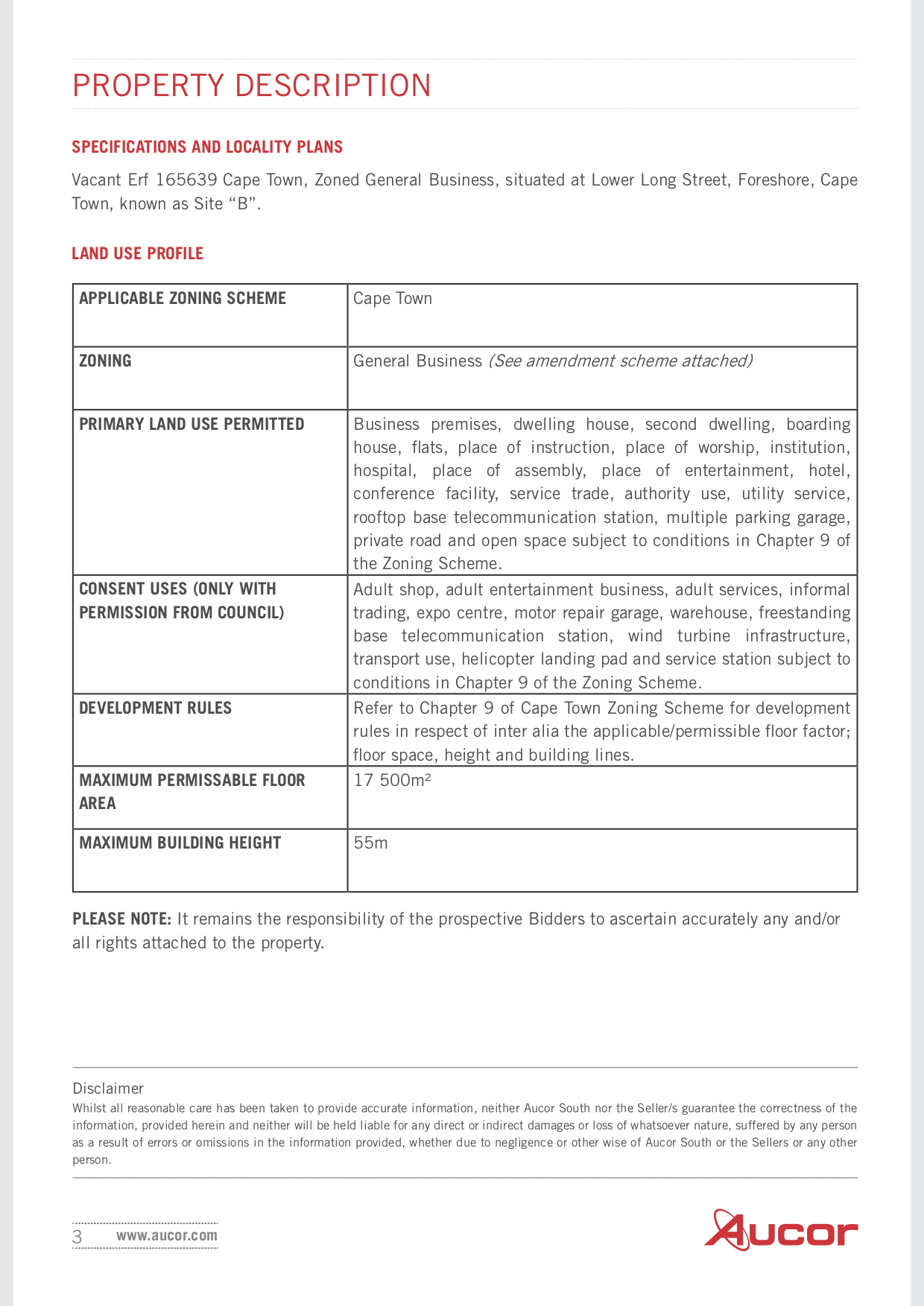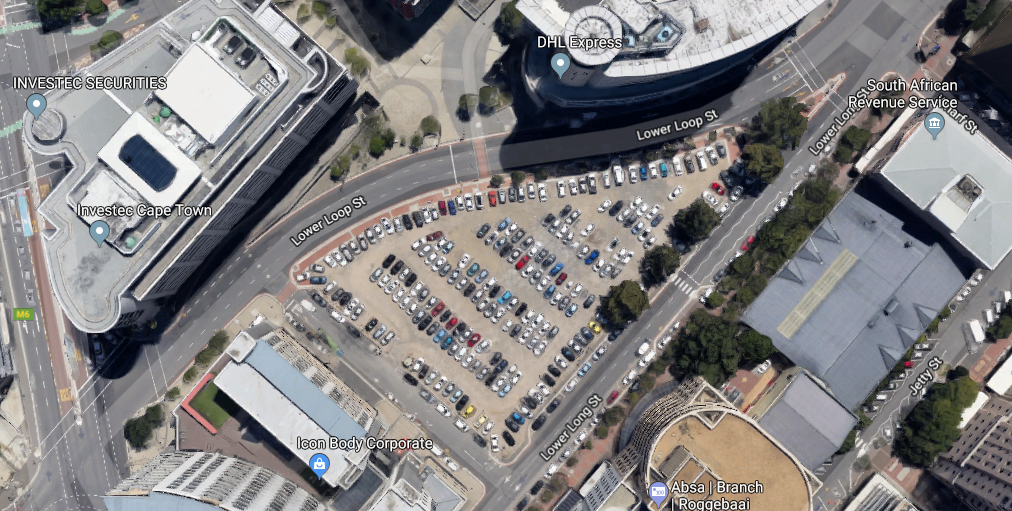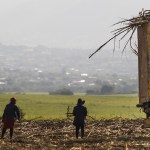LAND SALE DISPUTE
Controversial Site B not worth R227-million, insists Growthpoint Properties

Multi-national property group Growthpoint Properties has broken their months-long silence over their purchase of a piece of land owned by the City of Cape Town in 2016. Known as Site B, the purchase drew national attention when the city was accused of underselling the site to the tune of R140-million.
At a briefing in their Claremont office on 10 July, Growthpoint South Africa CEO Estienne de Klerk and other representatives told members of the press, “There is no factual basis to say that Growthpoint underpaid for [Site B].”
In 2016, NGO Ndifuna Ukwazi accused the City of Cape Town of underselling Site B to the tune of R140-million, estimating that it was worth approximately R227-million, rather than the R86.5-million Growthpoint bought it for. Recently the issue has regained public, and now political interest, with the GOOD Party also accusing the City of Cape Town of underhand deals. Late last week GOOD officially tasked the Public Protector with probing the sale of Site B.
Originally, the city advertised the property with 17,500m2in bulk rights, also known as permissible floor area. This is the total floor space a contractor can build on a property, vertically and horizontally. The original advertisement (see image below) also stipulated that the erf was zoned for general business, and had maximum build height of 55m (some of the other buildings in the vicinity are over 100m tall).

According to the 10 July briefing, Growthpoint claims that on 4 April 2017 it was established that the Site actually had 46,00m2of bulk rights, significantly more than the 17,500m2originally advertised by the City). But the company claims it had “no prior knowledge that the property had 46,000m2of bulk” before purchasing. “Given it was a public auction, you’d think there were some checks and balances,” said De Klerk.
Yet, according to the wording in the auction prospective (see above), the disclaimer is clear: “It remains the responsibility of the prospective Bidders to ascertain accurately any and/or all rights attached to the property.”
Last year GroundUp reported that two pieces of land, what is now known as Site B as well as an adjacent piece of land, block A, equated to 69,000m2. In its Application Plan to build a mixed-use building with retail, offices and a hotel, Growthpoint put forward that, because block A was sold by the city to become “The Icon” building (see Google Maps screenshot below) with 22 896 m² of bulk, the remaining 46,000m2should be utilised for Site B.

By dividing the sale price by the original bulk rights of 17,500m2, Ndifuna Ukwazi estimated Growthpoint paid approximately R5,000 per square meter of permissible floor area. When this is scaled up to 46,000m2Ndifuna Ukwazi estimated the property to be worth approximately R227-million.
According to Growthpoint, “valuing a property based on a bulk rate is not a viable method of valuation.” Despite this, the company sought out an independent valuation for Site B and, as of 1 December 2018, the property was allegedly valued at R92-million by the independent evaluator.
“The first guy to offer us R227-million can have [Site B],” said De Klerk. Growthpoint emphasised that the company “paid a fair value for the property.”
In a statement released by Ndifuna Ukwazi after Growthpoint’s press briefing on 10 July, the NGO disputed the property giant’s assertion that a property’s value is not based on bulk rights.
“Growthpoint’s assertion that the land has the same value with either 17,500 or 46,000 meters of bulk rights is false,” said Ndifuna Ukwazi communication manager Zacharia Mashele in a statement. “The average price per bulk meter in the inner city is around R5,000/m2, whereas Growthpoint paid only R2000/m2. While there are other factors besides bulk rights that influence the value of land, Growthpoint would be hard-pressed to find any other piece of land on the Foreshore that sold for anywhere near as low as R2000/m2.”
When asked by a member of the press if Growthpoint thought it had been misrepresented by activist organisations such as Ndifuna Ukwazi and Reclaim the City, De Klerk said: “They have used us to try and promote their cause.”
Earlier this month the Municipal Planning Tribunal found that Growthpoint’s planning application, which was submitted in June last year and tabled under the assumption that Site B has 46,000m2rights, failed. This is as a result of subdivision issue from 1997, which the Tribunal ruled resulted in the property’s zoning being classified as undetermined, meaning that building plans cannot move forward until the zoning has been determined.
Growthpoint Asset Manager for the Cape Town office, Timothy Irvine, said the company will likely appeal this decision.
In communication with Daily Maverick on 5 July, Brett Herron, former DA councillor and current Secretary-General for the GOOD Party said he is invested in finding out if Growthpoint knew they were purchasing more rights than the 17,500m2initially advertised.
In response to the GOOD Party’s implication that Growthpoint might be in bed with the DA, De Klerk said the allegations were “ironic” considering the party’s leader, Patricia de Lille, was Mayor of the DA-led city at the time of the sale.
In the statement released on 10 July Growthpoint denied any association with political parties, claiming the company’s policy does not allow funding of political parties or affiliations of any kind.
“The impression that Growthpoint has done anything wrong or underhanded, or got involved in any political scrap, is unfounded,” said De Klerk.
In their press statement on 10 July, Ndifuna Ukwazi stated that “the city failed the public because it sold public land with advertised rights to build a low-rise building in an area of the city characterised by sky-scrapers”. The NGO, which fights for the redress of spatial apartheid in the inner city, said that the primary fault lies with the City of Cape Town.
According to a forensic investigation, called for de Lille when she was Mayor, the city’s hands are clean. When asked about the report, city spokesperson Luthando Tyhalibongo said: “The investigation revealed that there were no irregularities with regard to the sale of the property.”
However, the city has not made the report available to the public, instead reiterating that the investigation found the sale was above board.
Growthpoint, Ndifunak Ukwazi and the GOOD Party have called on the City of Cape Town to release the findings of the investigation to the public. The city responded to Daily Maverick’squery by requesting anyone interested in viewing the report to file a Promotion of Access to Information Act (PAIA) application.
Daily Maverick has submitted a PAIA application, with the city being given 30 days to provide it with a copy of the report or to explain why it will not be released to interested parties. DM

















